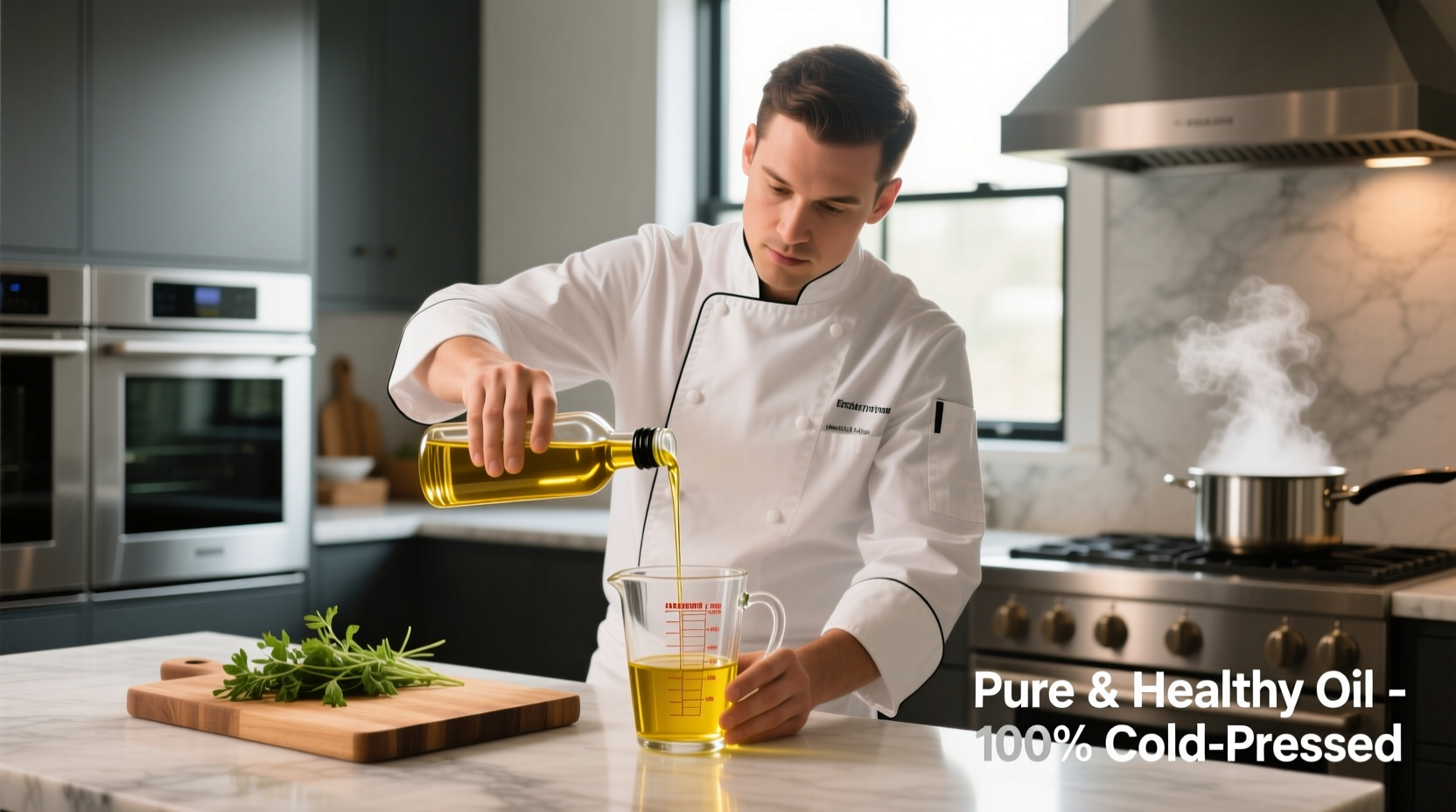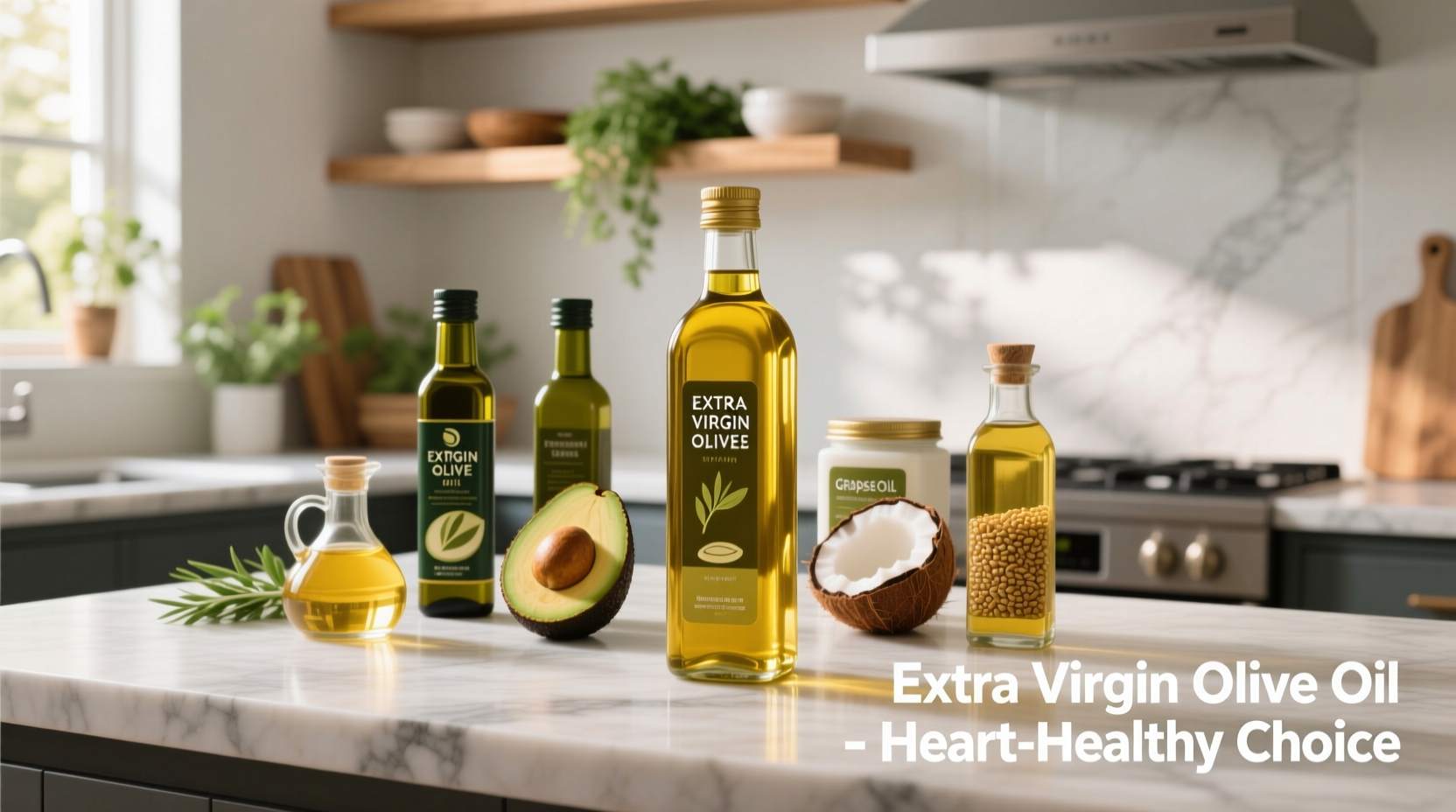Based on current scientific consensus from major health organizations, extra virgin olive oil is generally considered the healthiest option for low-to-medium heat cooking and dressings, while avocado oil is optimal for high-heat applications. The "healthiest" oil depends on your specific cooking method, nutritional goals, and the oil's smoke point, fatty acid composition, and stability when heated.
Choosing the right cooking oil can significantly impact both your meal's flavor and your long-term health. With conflicting information flooding the internet, it's time to cut through the noise with evidence-based guidance that helps you make informed decisions in your kitchen. This guide delivers precisely what you need: clear comparisons, practical recommendations, and scientific insights you can trust.
Understanding What Makes an Oil "Healthy"
Before diving into specific oils, let's establish the scientific criteria that determine an oil's health profile. Three critical factors work together to determine which oil serves you best:
Smoke Point Matters More Than You Think
When oil reaches its smoke point, it breaks down chemically, producing harmful compounds like acrolein and free radicals. The American Heart Association emphasizes that using oil beyond its smoke point negates any health benefits and introduces toxins into your food. Different oils have dramatically different smoke points based on their processing and composition.
Fatty Acid Composition: The Heart Health Connection
The balance of monounsaturated fats (MUFAs), polyunsaturated fats (PUFAs), and saturated fats determines an oil's cardiovascular impact. Harvard T.H. Chan School of Public Health research shows that replacing saturated fats with unsaturated fats reduces heart disease risk by up to 30%. But not all unsaturated fats behave the same when heated.
Oxidative Stability: The Hidden Factor
This often-overlooked property determines how resistant an oil is to oxidation when heated. Oils high in polyunsaturated fats like omega-3s (such as flaxseed oil) oxidize quickly when heated, creating harmful compounds. The Journal of Agricultural and Food Chemistry published research showing that monounsaturated fats like those in olive oil maintain stability better during cooking.
| Cooking Oil | Smoke Point (°F) | Primary Fat Composition | Best Cooking Methods |
|---|---|---|---|
| Extra Virgin Olive Oil | 320-375 | 73% MUFA, 14% PUFA, 14% SFA | Sautéing, dressings, low-heat cooking |
| Avocado Oil | 520 | 70% MUFA, 13% PUFA, 12% SFA | Grilling, frying, roasting |
| Refined Coconut Oil | 450 | 12% MUFA, 2% PUFA, 86% SFA | Baking, medium-heat cooking |
| High-Oleic Sunflower Oil | 450 | 80% MUFA, 5% PUFA, 10% SFA | Frying, baking |
| Sesame Oil | 350-410 | 40% MUFA, 45% PUFA, 15% SFA | Stir-frying, finishing oil |

Top Cooking Oils Compared: Science-Backed Analysis
Extra Virgin Olive Oil: The Mediterranean Standard
Extensive research from the PREDIMED study, published in the New England Journal of Medicine, demonstrated that a Mediterranean diet supplemented with extra virgin olive oil reduced cardiovascular events by 30% compared to a low-fat diet. What makes it special? Its high polyphenol content provides antioxidant and anti-inflammatory benefits that survive moderate heating. The USDA National Nutrient Database confirms extra virgin olive oil contains over 30 different phenolic compounds.
When to use it: Ideal for sautéing vegetables, salad dressings, and finishing dishes. Avoid using for deep frying or high-heat searing. Choose certified extra virgin olive oil with harvest dates for maximum polyphenol content.
Avocado Oil: The High-Heat Champion
With a smoke point reaching 520°F, avocado oil outperforms most alternatives for high-heat cooking. Research from the Journal of Food Science shows avocado oil maintains its monounsaturated fat structure even at high temperatures, preventing harmful oxidation. Unlike olive oil, it has a neutral flavor that won't overpower dishes.
When to use it: Perfect for searing meats, stir-frying, and roasting at high temperatures. Look for cold-pressed, unrefined varieties to preserve nutritional benefits.
The Coconut Oil Controversy: Separating Fact From Hype
Despite popular claims, the American Heart Association cautions against coconut oil due to its high saturated fat content (about 82%). A comprehensive review in the journal Circulation found that coconut oil raises LDL cholesterol significantly more than unsaturated oils. If you enjoy its flavor, use refined coconut oil sparingly for baking or medium-heat cooking, but don't consider it a health food.
Practical Guidance: Matching Oil to Cooking Method
Low-Heat Applications (Under 350°F)
For salad dressings, dips, and gentle sautéing, extra virgin olive oil shines. Its complex flavor profile and polyphenol content deliver maximum health benefits when not exposed to high heat. The European Journal of Clinical Nutrition published findings showing that olive oil's beneficial compounds remain stable when used for cooking at temperatures below 350°F.
Medium-Heat Cooking (350-400°F)
For most everyday cooking tasks like pan-frying chicken or sautéing vegetables, high-quality extra virgin olive oil or virgin avocado oil work well. These temperatures stay within the safe range for preserving the oils' healthful properties while providing excellent flavor development.
High-Heat Applications (Over 400°F)
When searing steaks, deep-frying, or roasting at high temperatures, choose oils with high smoke points and oxidative stability. Avocado oil, high-oleic sunflower oil, or refined safflower oil perform best. Research from the University of California, Davis demonstrated that avocado oil produces significantly fewer polar compounds (harmful oxidation byproducts) than olive oil when heated to 480°F.
Avoiding Common Cooking Oil Mistakes
Many home cooks unknowingly compromise their health through these common errors:
- Reusing oil multiple times: Each heating cycle degrades oil quality. The FDA recommends against reusing frying oil more than 2-3 times.
- Heating oil until it smokes: This indicates breakdown has already occurred. Heat oil just until it shimmers.
- Storing oils improperly: Light and heat accelerate oxidation. Store oils in dark glass containers in a cool cupboard.
- Assuming all "healthy" oils work for all methods: Each oil has specific strengths - match them to your cooking technique.
Expert Recommendations for Your Health Goals
For heart health: Prioritize extra virgin olive oil for daily use. The landmark PREDIMED trial showed that consuming about 4 tablespoons daily as part of a Mediterranean diet reduced cardiovascular events significantly.
For weight management: All oils contain 120 calories per tablespoon. Measure rather than pouring freely, and choose flavorful oils like extra virgin olive oil that satisfy with smaller quantities.
For inflammation reduction: Focus on oils high in monounsaturated fats and polyphenols. Extra virgin olive oil's oleocanthal compound has anti-inflammatory effects similar to ibuprofen, according to research in Nature.
Final Verdict: Your Action Plan for Healthier Cooking
Instead of searching for one "perfect" oil, build a kitchen arsenal with two primary options: keep extra virgin olive oil for low-to-medium heat cooking and dressings, and maintain avocado oil for high-heat applications. This approach maximizes both health benefits and culinary versatility while minimizing potential harm from overheated oils.
Remember that oil quality matters as much as type—choose cold-pressed, unrefined varieties when possible, check harvest dates, and store properly to preserve nutritional value. The healthiest oil is the one you use appropriately for your cooking method while considering your specific health needs.











 浙公网安备
33010002000092号
浙公网安备
33010002000092号 浙B2-20120091-4
浙B2-20120091-4